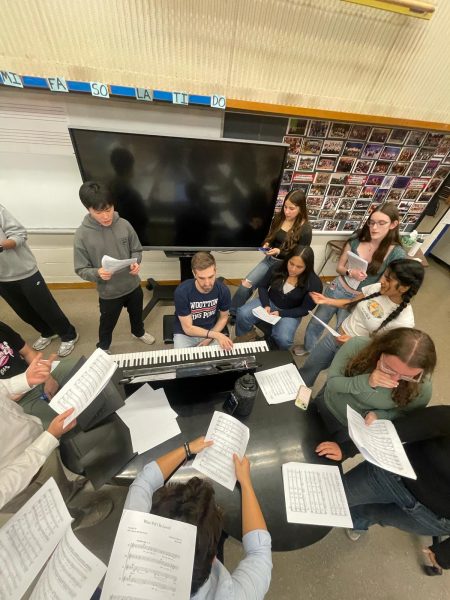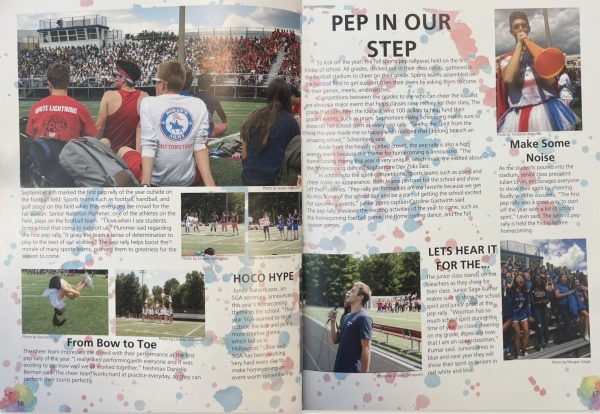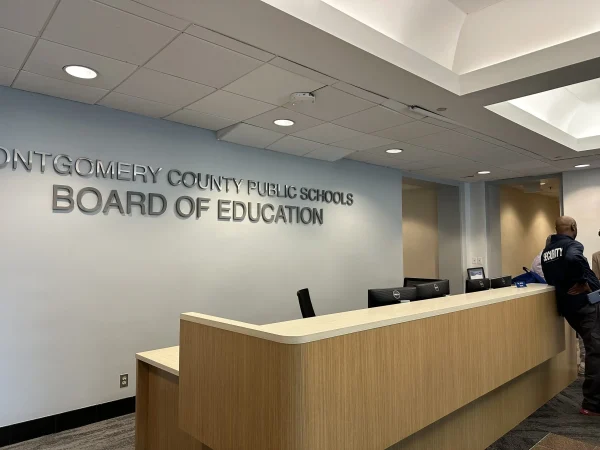Revamp needed for post-AP exam assignment schedule
Senior Mike Peng scrambles to complete his AP Statistics final project.
It’s no secret that AP classes at this school have challenging curriculums and sometimes an absurd amount of assignments — whether it be tests or homework. However, most of the time, this heavy workload is justified as it helps prepare students for their AP exams, which the school’s students tend to do very well on across the board. After all of the hard work that students have put in over the course of the year, they may expect the number of assignments in their AP courses to dwindle following the AP exam. To their dismay, this is most often not the case as teachers pile on reflection after reflection and project after project to end the school year. These assignments, in most cases, ultimately do more harm than good for students, in more ways than one.
The most direct consequence of these end-of-year assignments is the amount of time they take to complete, leaving students with less time to spend with friends and classmates who they may never see again. These assignments also mean that students cannot start summer camps or internships as early because they still have to be in school. Even if a student’s summer is not filled with activities, they could have extra time to prepare for the difficult transition into adulthood that comes with attending college next year.
Without all of that extra schoolwork, students could also recuperate and destress after working hard to prepare for their AP exams. Instead, these extra assignments that do little for students’ learning lead to further burnout and loss of motivation, unnecessarily prolonging senioritis.
Nevertheless, if teachers insist on making use of class time in the weeks after AP exams, they could each teach life lessons that students, especially seniors, make use of later on in life. For example, each AP teacher could teach a different life lesson from financial responsibility to cooking a meal, and each student could decide which lesson they want to learn on a specific day.
Teachers could also resort to playing educational games without attaching grades to doing so, at least for seniors, allowing students to learn without continuing to worry about their grades with their motivation at a year-long low. The school’s AP Microeconomics classes, for example, play Settlers of Catan in small groups to have some fun while reinforcing economics concepts such as opportunity cost and trade.
A final, slightly less realistic option, would be to organize field trips for students, such as going to history museums for AP US History classes or attending recycling centers for APES classes. This solution would be a compromise for teachers and students, as there would be learning involved, satisfying teachers, and students could attend school without feeling stressed out and overloaded by the number of assignments.
Your donation will support the student journalists of Thomas S. Wootton High School. Your contribution will allow us to purchase equipment and cover our annual website hosting costs.
Daniel is a 2023 graduate.







